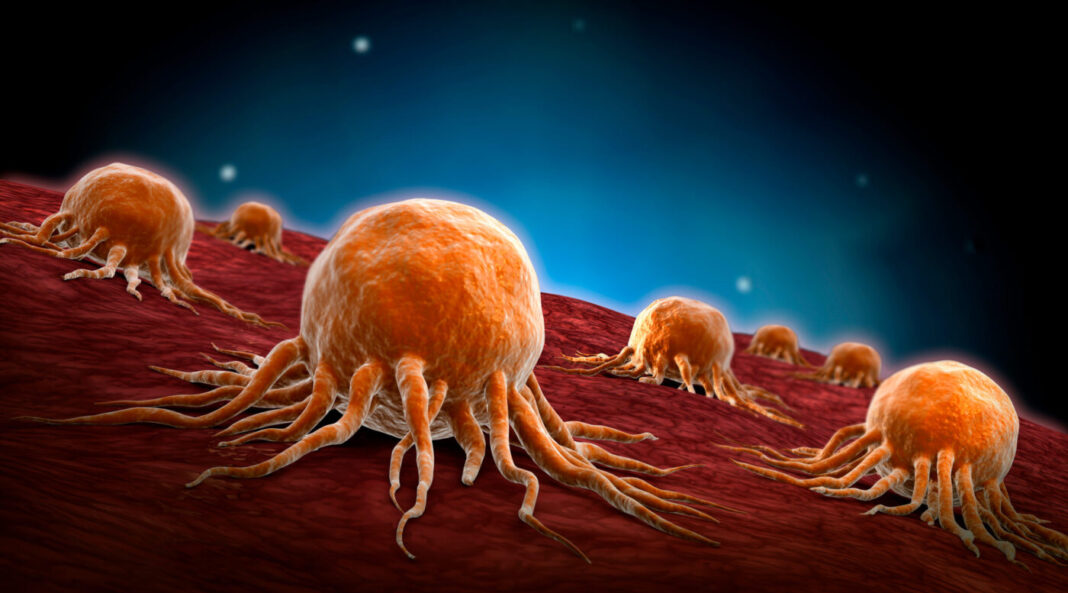All cells use sugar as a vital source of energy and building blocks. Unfortunately, that means even cancer cells use sugar. Researchers at Memorial Sloan Kettering (MSK) Cancer Center wondered what happens when tumor cells and immune cells battle for the same sugar supply. Using mouse models and data from human patients, the researchers found a direct relationship between the amount of sugar that a tumor consumes and the effectiveness of immunotherapy. The more sugar the tumor consumed, the less effective the immunotherapy.
Their findings, “CTLA-4 blockade drives loss of Treg stability in glycolysis-low tumors,” were published in Nature and suggest that blocking cancer cells’ use of sugar could tip the scales in favor of immune cells, especially when they are activated by immunotherapy drugs.
“Limiting the metabolic competition in the tumor microenvironment (TME) may increase the effectiveness of immunotherapy,” the researchers wrote. “Because of its critical role in glucose metabolism of activated T cells, CD28 signaling has been proposed as a T-cell metabolic biosensor. Conversely, CTLA-4 engagement has been shown to down-regulate T-cell glycolysis. Here, we investigated the impact of CTLA-4 blockade on the metabolic fitness of intra-tumor T cells in relationship to the tumor glycolytic capacity. We found that CTLA-4 blockade promotes immune cell infiltration and metabolic fitness especially in glycolysis-low tumors.”
“If we reduce a tumor’s use of glucose, then we free up more of it for immune cells to use, which benefits the immune response,” said Taha Merghoub, PhD, assistant attending lab member at MSK Cancer Center, who co-led the research effort.
“What we think we’ve identified is a new means to improve checkpoint blockade immunotherapy,” added Jedd D. Wolchok, MD, PhD, medical oncologist at MSK. Wolchok also serves as chief of the immuno-oncology service in the human oncology and pathogenesis program, directs the Parker Institute for Cancer Immunotherapy, and co-directs the Ludwig Center for Cancer Immunotherapy at MSK.
The researchers used a mouse model of breast cancer that is highly glycolytic to observe the relationship between tumor cells’ use of glucose and response to immunotherapy. In the first set of tumors, the researchers genetically knocked down key enzyme cells required to rapidly consume glucose in a process called glycolysis. In the second set, the enzyme was left alone. Each set of tumors was grown in mice and then the mice were treated with checkpoint inhibitors targeting CTLA-4 before having surgery to remove the tumor.
The researchers found that the mice whose tumors consumed less sugar survived longer and had a far lower rate of metastasis than the mice with tumors that used more glucose.
The researchers also noted that the improved immune response exhibited memory. When researchers re-implanted tumors in the mice exposed to the less-glycolytic tumors, tumor growth remained suppressed.
By mimicking the highly and poorly glycolytic TME in vitro, the researchers showed that the effect of CTLA-4 blockade to promote Treg destabilization is dependent on Treg glycolysis and CD28 signaling. These findings indicated that decreasing tumor competition for glucose may facilitate the therapeutic activity of CTLA-4 blockade, thus supporting its combination with inhibitors of tumor glycolysis.
“It was surprising and exciting to see that CTLA-4 blockade induces Tregs to use glucose and that this in turn reduces the suppression activity of these cells,” noted Roberta Zappasodi, PhD, a former Parker Institute Bridge scholar in the Merghoub-Wolchok lab and now a faculty member at Weill Cornell Medicine.
“The implication is that for tumors that are highly glycolytic and don’t respond to immune checkpoint blockade, one way of overcoming this resistance is to target tumor glycolysis with drugs,” Merghoub added.
These findings reveal that there is a need for drugs that can prevent tumor cells from using glucose while allowing immune cells to use it freely.


